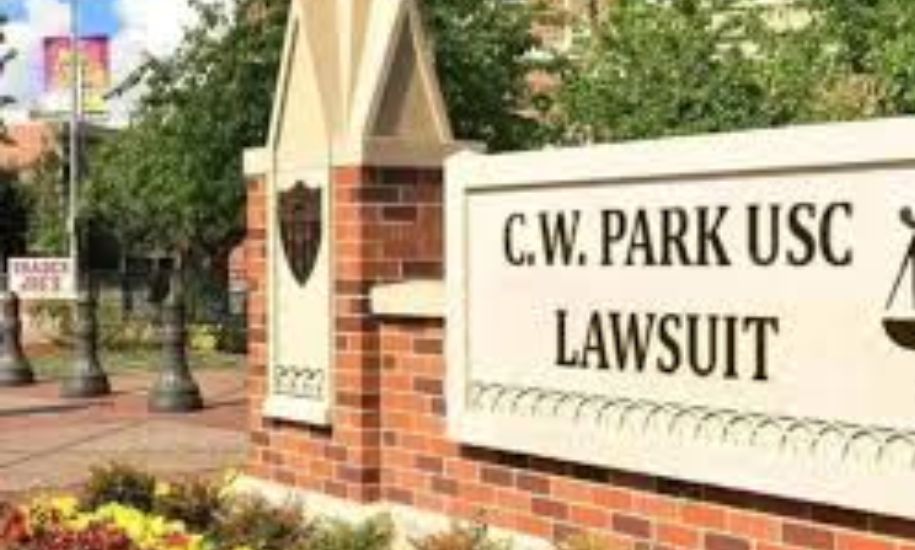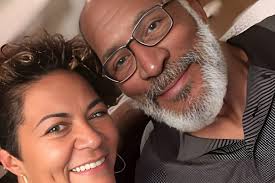Introduction to the C.W. Park USC Lawsuit
The C.W. Park USC lawsuit has sent shockwaves through the University of Southern California community, raising questions that extend far beyond the courtroom. What began as a legal dispute has morphed into a complex saga touching on critical issues affecting students and faculty alike. As details emerge, it’s clear that this case could reshape not only individual lives but also the very fabric of academic life at USC.
With repercussions rippling through tuition costs, job security, and institutional reputation, both current and prospective students are left wondering what lies ahead. Faculty members are equally anxious about their roles in this evolving landscape. The stakes couldn’t be higher as we delve into the implications of the c.w. park usc lawsuit for everyone involved—students and faculty included. Join us as we unpack the intricacies of this significant event and examine how it might change higher education forever.
Background and Details of the Case
The C.W. Park USC lawsuit emerged from a complex web of allegations concerning misconduct and violations of university policies. It centers on Dr. C.W. Park, a prominent faculty member whose actions have sparked significant controversy.
Key accusations include discrimination and failure to provide equitable opportunities for students within his department. The situation escalated when former students came forward, alleging that their academic experiences were adversely affected by these practices.
As the case unfolded, it drew attention not only for its specifics but also for what it represents in larger institutional failures at USC.
The legal battle has raised questions about how universities handle complaints against faculty, particularly those involving sensitive issues like harassment or bias.
This lawsuit is more than just an isolated incident; it’s part of a broader discussion on accountability and transparency in higher education environments across the nation.
Impact on Students: Tuition, Academic Programs, and Reputation
The C.W. Park USC lawsuit raises significant concerns for students regarding tuition fees. As the university navigates legal challenges, potential financial repercussions could lead to increased costs for current and future attendees.
Academic programs may also feel the strain. Resource allocation might shift as funds are diverted to cover legal expenses, jeopardizing vital courses and extracurricular activities that enrich student experiences.
Moreover, reputational damage is a pressing issue. A high-profile lawsuit can tarnish an institution’s image, potentially affecting enrollment numbers and attracting top-tier faculty.
Students often seek institutions with strong brand equity. When lawsuits dominate headlines, it becomes harder for universities like USC to maintain their allure in a competitive educational landscape.
Impact on Faculty: Job Security, Academic Freedom, and Diversity
The C.. Park USC lawsuit has raised crucial concerns for faculty members regarding job security. Uncertainty looms as the case unfolds, leaving many educators anxious about their positions and future at the university. They grapple with the potential ripple effects on hiring practices and tenure evaluations.
Academic freedom is another significant aspect under scrutiny. Faculty may feel constrained in their teaching methods or research topics due to fear of repercussions stemming from this legal battle. This environment can stifle creativity and critical thought, which are essential components of higher education.
Moreover, diversity within faculty ranks could be impacted as well. The ongoing situation might deter prospective candidates from diverse backgrounds who seek a supportive academic community. As these issues intertwine, they create a complex landscape that demands attention and action from university leadership to maintain an inclusive atmosphere for all educators.
Response from USC Administration
The USC administration has issued a statement addressing the C.
W. Park lawsuit, emphasizing its commitment to academic integrity and student welfare. They assert that they are reviewing all allegations carefully.
Officials have highlighted their dedication to transparency throughout this process. They plan to release updates as investigations progress, reassuring both students and faculty of their intent to address concerns thoroughly.
Additionally, the university is engaging with legal experts to navigate the complexities of the case. This proactive approach aims to uphold USC’s reputation while also ensuring compliance with educational standards.
In meetings held with various stakeholders, administrators have invited open dialogue about potential reforms inspired by feedback from the community. Their response indicates an awareness of broader implications within higher education that may arise from this situation.
Student and Faculty Reactions
The C.W. Park USC lawsuit has sparked a whirlwind of reactions from both students and faculty. Many students express concern over the potential disruptions to their education. Some fear that tuition hikes might be on the horizon if financial resources are strained.
Faculty members, meanwhile, grapple with uncertainty about job security. The case raises questions about academic freedom and how it may affect their ability to teach controversial topics without fear of repercussions.
Social media platforms are abuzz with discussions, some calling for solidarity while others express frustration at perceived administrative inaction. Student organizations have begun organizing meetings to voice collective concerns and brainstorm ways to support affected faculty members.
As tensions rise, an atmosphere of unease permeates campus life. Students and faculty alike realize that the implications extend beyond this lawsuit; they touch upon fundamental values within higher education itself.
Implications for Higher Education Institutions
The C.W. Park USC lawsuit serves as a wake-up call for higher education institutions nationwide. It highlights the need for transparency and accountability in academic governance.
As universities face increased scrutiny, they must reevaluate their policies on diversity, equity, and inclusion. The case underscores that neglecting these issues can lead to significant legal repercussions.
Moreover, institutions may need to adapt their hiring practices to ensure diverse perspectives among faculty members. This shift could enhance the educational experience for students while fostering an inclusive environment.
Additionally, the fallout from this lawsuit might prompt colleges and universities to strengthen their communication channels with stakeholders. Engaging students and faculty in decision-making processes can mitigate unrest before it escalates into larger conflicts.
Ongoing litigation like this emphasizes the necessity of robust support systems for both students and staff facing challenges within academia.
Conclusion: Lessons Learned and Moving Forward
The C.W. Park USC lawsuit has opened a Pandora’s box of issues that resonate deeply within the academic community. As students and faculty navigate this turbulent landscape, several lessons emerge.
Transparency is crucial. Both students and faculty need clear communication from administration regarding policies and any ongoing legal matters. Trust can easily erode without it.
Institutions must prioritize diversity and inclusion in their hiring practices. A diverse workforce enriches the educational experience for everyone involved. It fosters creativity, innovation, and broader perspectives—elements vital to modern education.
Furthermore, job security for faculty should never be compromised when conflicts arise. Academic freedom relies on stability; it allows educators to teach without fear of retaliation or job loss.
Students too have a role to play in advocating for their rights while supporting their professors during challenging times like these. Unity among all members of an institution strengthens its ability to weather storms together.
As higher education institutions reflect on this case, they may find inspiration in creating more resilient frameworks that can withstand adversity while nurturing learning environments filled with respect and opportunity for all stakeholders involved.
Moving forward means not just reacting but proactively working towards a stronger foundation built on mutual respect between students, faculty, and administration alike—a foundation capable of overcoming even the most pressing challenges.







